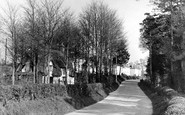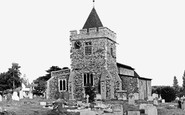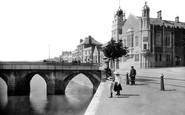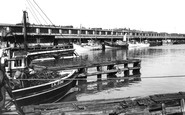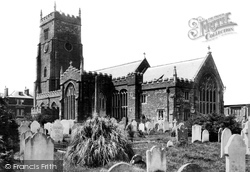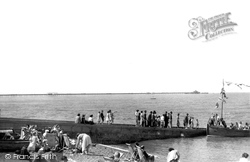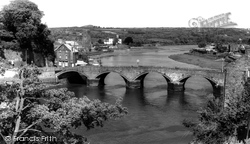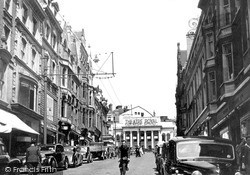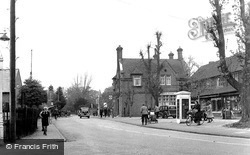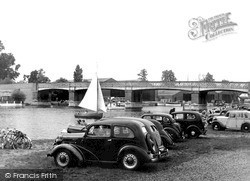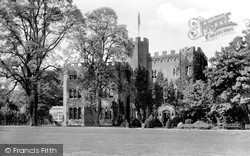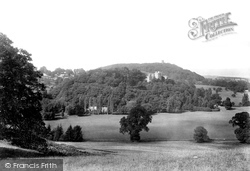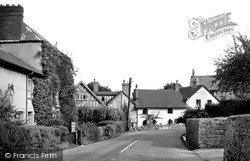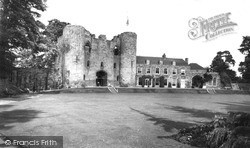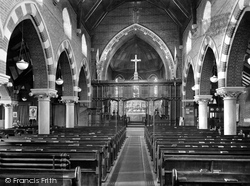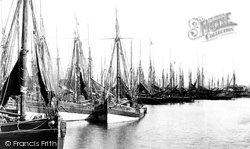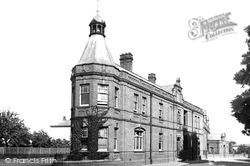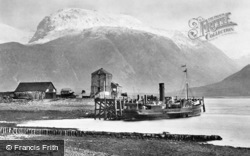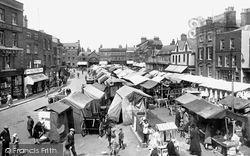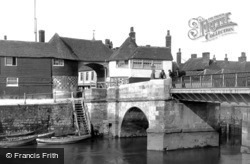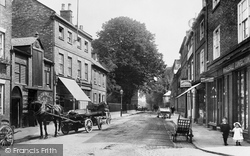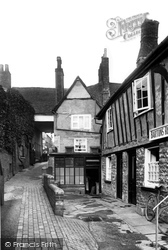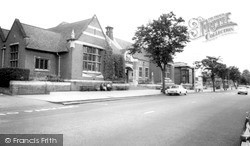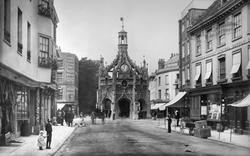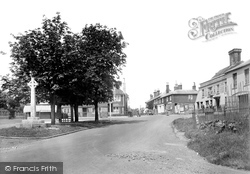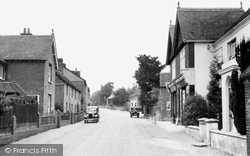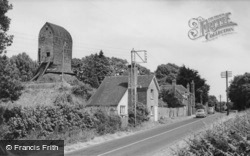Places
18 places found.
Those places high-lighted have photos. All locations may have maps, books and memories.
- Hythe, Kent
- Hythe, Hampshire
- Small Hythe, Kent
- Bablock Hythe, Oxfordshire
- Methwold Hythe, Norfolk
- Hythe, Somerset
- Hythe, Surrey
- Hythe End, Berkshire
- The Hythe, Essex
- Egham Hythe, Surrey
- West Hythe, Kent
- New Hythe, Kent
- Broad Street, Kent (near Hythe)
- Horn Street, Kent (near Hythe)
- Newbarn, Kent (near Hythe)
- Newington, Kent (near Hythe)
- Broad Street, Kent (near Hythe)
- Stone Hill, Kent (near Hythe)
Photos
360 photos found. Showing results 3,541 to 360.
Maps
101 maps found.
Books
10 books found. Showing results 4,249 to 10.
Memories
4,406 memories found. Showing results 1,771 to 1,780.
Happy Childhood
I lived in Figheldean from about 1949 - 1953, my parents and I lived in the Red Bungalow near the Wheatsheaf pub. My best friend was Wendy Stanfield, sadly no longer with us. Her father owned Stanfield's garage situated in the ...Read more
A memory of Figheldean by
St Michael's Church
I remember Father McNeice, Father Randall and Father Preston as vicars at St Michael's church in Aveley. My Mother Mary Archer was the church clerk at St Michael's for many years from the 50s. She also did some cleaning there, was a ...Read more
A memory of Aveley
Memory Of Southall
I was born in St George's Avenue and went to North Road Infants and Juniors. Both my parents were from Southall. My aunt still lives by western Market. I remember playing by the gas works and railway and summer carnivals in the park.
A memory of Southall
Holidays On Newton Beach
My Grandmother owned 2 bungalows on Newton Beach, one being a converted bus which was called "The Chalet" and the other was named "Duneside". She lived there between the months of April and October, and I spent all ...Read more
A memory of Newton by
Winstanley Estate Before Demolition
I was born and lived in maysoule road in 1938 on the corner of maysoule road was a off licence called gogays and a news agent on opposite owned by the same gogays there was a hair dresser on plough road run by jack ...Read more
A memory of Battersea by
Happy Days!
I was at school in Essex in the early 50's but my parents lived in Bideford at ! Cottingham Crescent behind the old Grammar school. My stepfather Ernest Jewell worked for Beers , which I think was a builders, and my mother Edith Jewell was ...Read more
A memory of Bideford by
The Duke Of Kent Northhumberland Heath
I was born and lived in Hengist Road opposite Collindale Ave near Brook Street and the Rec as we called it, I'm Tony Messum and I shared with my Brother Michael, and Sister Patricia and my buddies were ...Read more
A memory of Northumberland Heath by
Public Health In Grimsby.
I was a Public Health Inspector in Grimsby from 1950 to 1954 when I moved to Suffolk. I remember going to the old and new slaughterhouses to do meat inspection, working all hours and getting nothing for it ! We had to take ...Read more
A memory of Grimsby by
Trees Please, We're British
The current fad for destruction of our lovely landscape and English and Welsh countryside has to stop! When I first came to Rockfield many years ago (from the Forest) it was a long way from Monmouth, now the suburbs ...Read more
A memory of Rockfield Park by
Central
I was born in farm cross left there for eastfield when 5 went to st Columbkills in think kirkwood st. My gran lived up the closs at central cafe if u can remember that ,think the arcade is there now myself brothers& sisters all went to ...Read more
A memory of Rutherglen by
Captions
4,899 captions found. Showing results 4,249 to 4,272.
The parish church is dedicated to St John the Baptist, but it was known in 1488 and in 1755 as the church of SS Peter and Pawle, a name used by the followers of St Augustine in around 600AD.
The Grand Pier Pavilion, opened by the Lord Mayor of London in 1910, had already been gutted by fire in 1970.
An earth and timber castle was established here by the Normans in 1110. After several attempts, the Welsh took it in 1165, rebuilt it in stone and held the first Eisteddfod within its walls in 1176.
Market Street leads from Old Market Place behind the photographer to Upper Parliament Street, and is terminated by the Theatre Royal's 1865 stuccoed front with its six-columned portico.
At its east end, down by the River Wey, is a superb brick manor house of the 1680s, which has been much altered subsequently and is now divided into apartments.
By the river, a road leads off Walton Lane under the bridge towards Walton Marina.
In December 1216, the castle was besieged and captured by the army of the French Dauphin.
Now owned by the National Trust, it was the home of the Luttrell family for six centuries.
Mona House (left) was partly thatched until a fire in 1924, when Lady Jones was rescued from her bedroom window by the local publican climbing up a ladder.
Whalley means 'the clearing or field by the hill', and we can see how close the hill known as Whalley Nab is.
Situated on the north bank of the Medway, the original motte and bailey castle was replaced with stone by the early 13th century, when the shell keep was built.
The brick and ornamented stone interior of the church was augmented by the chancel screen, installed here in 1931, which was designed by Ryan Tenison and had formerly stood in the chapel of St John's College
By 1891 the Grimsby fleet numbered 800 sail and 35 steam vessels; yet by the beginning of the 20th century it had changed to 500 steam and 34 large sailing trawlers.
Standing between the Dartford Road and Seal Hollow, and with its Club Hall visible on the north side, it was built by the Constitutional Club company for social and political meetings, and
The village was a modest settlement up until 1795, when it was reached by the new road from Fort William. Corpach is where the Caledonian Canal joins with Loch Linnhe and the route to the sea.
It is the wealth created by the years of shipping which has given Wisbech two of the most perfect Georgian streets in England - the Brinks on the banks of the River Nene.
Originally the first of the Cinque Ports, its Saxon harbour had silted up by the late 14th century, ending its role as the chief place of embarkation for the Continent and as England's premier naval
It was on this street that a chantry house was provided, built by the widow of wealthy Newark merchant Alan Flemyng.
By the 1950s it had become Ye Olde Barn, and it is still a restaurant today.
This was given by the philanthropist Andrew Carnegie (1835-1919), who donated part of his American fortune to building libraries in the United Kingdom in memory of what he had learnt in his Scottish youth
The south-west section is dominated by the Norman cathedral, established here after 1072, when the Bishopric was moved here from Selsey.
Dunster's Mill House was a 15th-century semi-aisled hall house with an associated watermill; it has now been moved because the old site is inundated by the new Bewl Water reservoir.
Now in the care of the National Trust and run by the Royal Botanical Gardens, Kew, it is open to visitors. The South of England agricultural showground is in the locality.
There was a bakery by the mill house. The mill is now being restored by its owner. Iron electricity poles line the road; they are of a type only seen in this part of Sussex.
Places (18)
Photos (360)
Memories (4406)
Books (10)
Maps (101)



